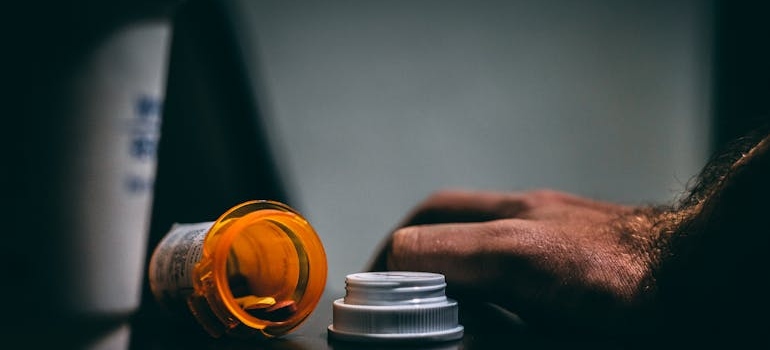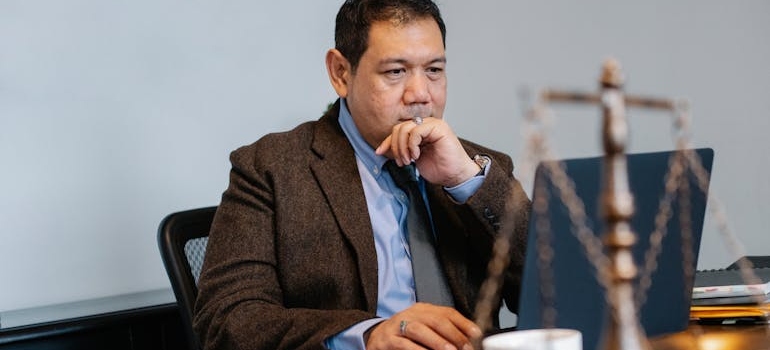Benzodiazepines, often prescribed for anxiety or insomnia, can lead down a risky path when misused. Here at Harmony Ridge Recovery Center WV, we understand the challenges you might face. The legal and medical implications of benzodiazepine abuse are serious and can affect every part of your life—from your health to your legal standing. If you or someone you know is struggling, it’s crucial to grasp both the risks involved and the avenues for help. We’re here to guide you through understanding these drugs, recognizing abuse, and finding effective treatment options.
What Are Benzodiazepines?
Benzodiazepines, commonly referred to as “benzos,” are a class of drugs known for their calming effects. Widely recognized types include Xanax, Valium, and Ativan. These medications work by enhancing the effect of the neurotransmitter GABA in the brain, which results in reduced anxiety, eased muscle tension, and sedative effects.

While benzos are effective for treating a variety of conditions like anxiety and insomnia, they must be used carefully due to their potential for dependence and withdrawal symptoms. Understanding these drugs and their effects is crucial, especially if you or someone you know is prescribed them. Being informed helps manage their use responsibly and ensures safety.
Medical Uses of Benzodiazepines
Benzodiazepines play a critical role in managing conditions like anxiety, insomnia, and even seizures. If you’re struggling with any of these issues, these medications might be part of your treatment plan. They work by calming the nervous system, which can bring a significant relief when you’re feeling overwhelmed or can’t sleep. However, it’s important to use them exactly as prescribed to avoid dependency.
Alongside medication, engaging in psychotherapy for addiction can provide robust support, especially if dependency begins to develop. This dual approach helps address both the symptoms and the underlying causes of your distress, leading to more sustainable recovery. Asking for help and understanding your treatment options is a strong step towards better health.
How Benzodiazepine Abuse Develops
Benzodiazepine abuse can start innocently enough with a prescription for a legitimate medical issue like anxiety or insomnia. Initially, these medications do wonders, providing much-needed relief. However, over time, your body may begin to build tolerance, meaning you might feel the need for higher doses to achieve the same effect. This is a slippery slope that can lead to dependence and addiction.
Understanding the risks involved with long-term use is crucial. Factors like genetic predisposition, personal stress, or having a history of substance abuse can increase the likelihood of developing an addiction. It’s important to treat addiction as a disease — it’s not a failure of willpower but a complex condition that requires comprehensive treatment.

Immediate Health Risks of Benzodiazepine Misuse
Misusing benzodiazepines, even in the short term, can lead to several uncomfortable and dangerous health effects. If you’re experiencing these symptoms, it’s important to recognize them early and seek guidance:
- Drowsiness: Feeling unusually sleepy or lethargic can disrupt your daily activities and increase the risk of accidents.
- Dizziness: This can affect your balance and make walking or driving hazardous.
- Impaired coordination: You might find it difficult to perform tasks that require fine motor skills, increasing the chance of injury.
More severe risks include:
- Overdose: Taking too much can lead to life-threatening conditions.
- Respiratory depression: This serious side effect involves slowed or difficulty breathing, which can be fatal if not addressed promptly.
Chronic Health Implications from Long-Term Abuse
The long-term health consequences of benzodiazepine abuse extend far beyond immediate discomfort, affecting your mind, body, and emotional well-being. Here are some of the serious effects to consider:
- Cognitive impairments: Prolonged use can lead to memory loss and decreased mental function, complicating daily life and work.
- Physical health issues: Your liver can suffer damage, and your immune system may weaken, increasing vulnerability to infections and illnesses.
- Psychological impacts: There’s a heightened risk of anxiety, depression, and mood disorders, which can perpetuate a cycle of abuse.
Understanding these impacts is crucial as you or a loved one navigates recovery. These are not just personal challenges but also underscore the legal and medical implications of benzodiazepine abuse, highlighting the need for comprehensive treatment and support.

Recognizing and Managing Withdrawal Symptoms
If you’re considering stopping benzodiazepines, it’s important to understand the withdrawal symptoms that may occur. Abruptly discontinuing these medications can lead to severe consequences, such as seizures and intense anxiety. Withdrawal symptoms can also include sleep disturbances, irritability, increased tension, and physical discomfort. These symptoms can vary in severity but are a significant hurdle in the journey to becoming drug-free.
To manage withdrawal safely and effectively, gradual tapering under medical supervision is often recommended. Additionally, motivational interviewing for substance abuse can be an effective therapeutic approach during this challenging time. This method helps you find the internal motivation to change your behavior and supports you in navigating the complexities of recovery.
Regulating Prescriptions to Prevent Abuse
Benzodiazepines are regulated as controlled substances due to their potential for abuse and dependence. This classification helps guide the prescription practices of healthcare providers, ensuring these powerful drugs are used safely and responsibly. Stricter guidelines require thorough evaluations and documentation, emphasizing the need for regular follow-ups.
If you’re prescribed these medications, understanding these controls helps you use them correctly, minimizing risks. It’s important to communicate openly with your doctor, discussing any concerns about dependency or side effects. These laws are in place to help, not hinder, your journey to better health.
Criminal Charges and Penalties
Facing the legal consequences of benzodiazepine misuse can be daunting. If you find yourself in possession of benzos without a prescription, or if you’re involved in distributing them, the legal ramifications are serious. Here’s what you might face:
- Possession charges: Carrying benzodiazepines without a valid prescription can lead to charges of illegal possession.
- Distribution charges: Selling or distributing benzos can result in more severe penalties, including significant fines and jail time.
- DUI charges: Driving under the influence of benzodiazepines is not only dangerous but also legally punishable, with consequences similar to alcohol-related DUIs.
Understanding these potential outcomes underscores the importance of adhering to prescription guidelines and recognizing the legal and medical implications of benzodiazepine abuse. If you or someone you know is navigating these challenges, seeking legal advice and medical help is crucial to addressing the situation effectively.
Impact on Employment and Licensing
Benzodiazepine abuse can have far-reaching effects on your career, particularly if you’re in a profession that demands high responsibility, like healthcare. Misusing these substances can lead to severe consequences, including the loss of your job or professional license. This is because maintaining trust and safety in sensitive roles is paramount, and substance abuse undermines both.
If you’re struggling with benzo addiction, it’s important to take action before your professional standing is jeopardized. Addressing the issue not only helps protect your career but also your wellbeing. The legal and medical implications of benzodiazepine abuse are not just about law; they’re about maintaining your ability to perform in your chosen field. Seeking help early can prevent the situation from escalating and help safeguard your professional future.

How to Seek Medical Intervention for Benzodiazepine Abuse
There are many paths to overcoming addiction, and we’re here to explore a few of them, highlighting that recovery is truly possible. From individual therapy for addiction to holistic approaches, each approach offers unique benefits to help you find your way out and reclaim your life.
Rehabilitation Options for Recovery
If you or someone you care about is struggling with benzodiazepine misuse, it’s crucial to know that effective rehabilitation options are available. Recovery from benzo addiction isn’t a one-size-fits-all journey, and various treatments can be tailored to suit individual needs. Here are some pathways you might consider for benzo addiction treatment:
- Detox programs: Safely managing withdrawal under medical supervision to minimize symptoms and ensure safety.
- Inpatient rehab: A structured environment where you can receive round-the-clock care and support.
- Outpatient services: Allows you to attend therapy and counseling sessions while continuing with daily life.
- Support groups: Connecting with others who are facing similar challenges can provide encouragement and insight as you navigate recovery.
- Medication-assisted treatment (MAT): Sometimes, medications are used to reduce cravings and withdrawal symptoms, supporting overall recovery efforts.
Therapeutic Approaches to Overcome Addiction
Overcoming addiction requires more than willpower; it involves comprehensive therapeutic approaches tailored to individual needs. Cognitive behavioral therapy for substance use disorders is one such method. CBT helps you identify and change negative thoughts and behaviors related to drug use. By learning coping skills to manage triggers and stress, you can build a solid foundation for recovery.
Another effective strategy is dialectical behavior therapy for addiction. This therapy focuses on improving emotional regulation and developing mindfulness skills. DBT teaches techniques to accept uncomfortable feelings without returning to drug use, enhancing your ability to handle life’s challenges soberly. Both approaches provide tools that are crucial in the journey towards recovery, helping individuals regain control and move towards a healthier, drug-free life.

Holistic Treatments for Benzodiazepine Dependency
Exploring holistic therapy for addiction can be a transformative part of recovering from benzodiazepine dependency. This approach considers the entire person—body, mind, and spirit—aiming to heal all aspects affected by addiction. Holistic treatments might include yoga and meditation to calm the mind and strengthen the body, providing a natural way to manage stress and anxiety without relying on medication. Nutritional counseling is another key component, helping to restore physical health weakened by substance use.
Art and music therapies are also effective, offering creative outlets for expression and emotional release. These therapies encourage self-discovery and emotional healing, critical elements in long-term recovery. Engaging in holistic practices can empower you with new tools to handle life’s challenges, making you less reliant on benzodiazepines.
Legal Assistance and Resources
Facing legal and medical implications of Benzodiazepine abuse can feel overwhelming, but knowing your legal rights and resources is empowering. If you find yourself in legal trouble, it’s important to seek specialized legal assistance promptly. Lawyers experienced in handling addiction-related cases can guide you through the complexities of the legal system and work towards a resolution that may include treatment options as alternatives to incarceration.
Help is available not just for managing addiction but also for navigating any associated legal issues. Reaching out for legal support early can make a significant difference in handling your case effectively and compassionately, ensuring you have access to the necessary resources for both legal defense and recovery.

Promoting Awareness and Prevention of Abuse
Raising awareness about the risks of benzodiazepine abuse is crucial in curbing its prevalence. Education plays a key role, enlightening the public on the dangers and signs of misuse. Community programs are essential, providing resources for prevention and early intervention, ensuring that individuals understand how to seek help if they or someone they know is struggling. These initiatives are vital, as they foster a supportive environment that encourages speaking out and taking action against addiction.
Responsible Prescription Practices
Healthcare providers have a crucial role in curbing benzodiazepine misuse through responsible prescription practices. Specific regulations ensure that these powerful medications are prescribed safely. For instance, guidelines recommend limiting benzodiazepine prescriptions to the shortest duration necessary, typically no more than a few weeks.

Reevaluation before renewal discourages long-term dependency. Additionally, electronic prescription monitoring programs help prevent “doctor shopping,” where patients obtain multiple prescriptions from different doctors. Educating patients about the proper use and risks of benzodiazepines is equally important. Clear communication about potential side effects, the risk of dependence, and the importance of adhering to the prescribed dose can empower patients to use these medications safely.
Moving Forward: Addressing Benzodiazepine Challenges
As we’ve explored the legal and medical implications of benzodiazepine abuse, remember that recognizing the problem is the first step toward recovery. Abuse of these medications can cast a long shadow, but with the right support and guidance, the path to recovery is within reach. Whether you’re facing health risks, legal issues, or both, it’s never too late to seek help. Resources are available, and at Harmony Ridge Recovery Center WV, we are ready to support you every step of the way. Take action today for a healthier tomorrow. Your journey to reclaim your life starts with a single, brave decision.



